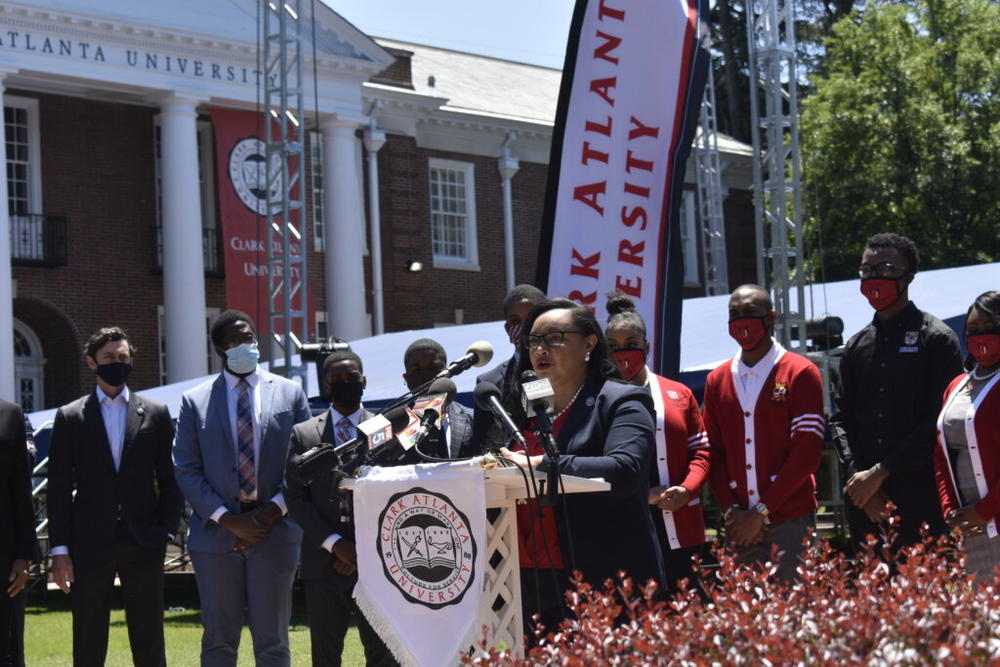
Caption
U.S. Rep. Nikema Williams speaks at Clark Atlanta University in May. Williams and other Georgia Democrats are pushing to boost the funding for historically Black colleges in the infrastructure bill working through Congress.
Credit: Ross Williams/Georgia Recorder

